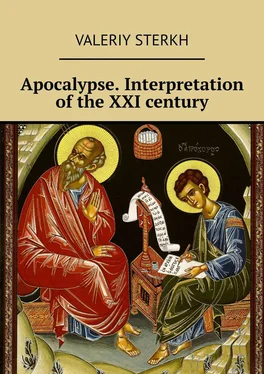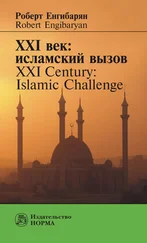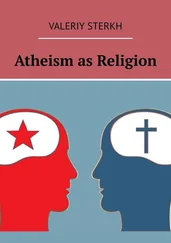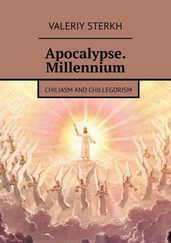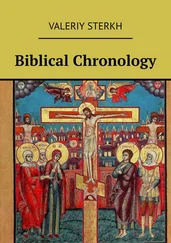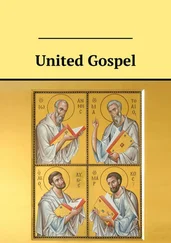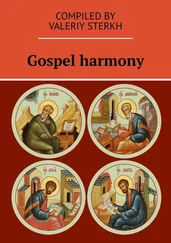I saw in the night visions, and, behold, one like the Son of man came with the clouds of heaven, and came to the Ancient of days, and they brought him near before him. And there was given him dominion, and glory, and a kingdom, that all people, nations, and languages, should serve him: his dominion is an everlasting dominion, which shall not pass away, and his kingdom that which shall not be destroyed (Dan 7:13—14).
Often this same name appears in the Gospels, where sometimes Jesus refers to himself as:
But that ye may know that the Son of man hath power on earth to forgive sins, (then saith he [Jesus] to the sick of the palsy,) Arise, take up thy bed, and go unto thine house (Mt 9:6; compare Mk 2:10; Lk 5:24).
And while they abode in Galilee, Jesus said unto them, The Son of man shall be betrayed into the hands of men (Mt 17:22; compare Mt 20:18; 26:2, 24, 45; Mk 9:31; 10:33; 14:21, 41; Lk 9:44; 22:22).
And as they came down from the mountain, Jesus charged them, saying, Tell the vision to no man, until the Son of man be risen again from the dead (Mt 17:9; compare Mk 9:9).
And Jesus said unto them, Verily I say unto you, That ye which have followed me, in the regeneration when the Son of man shall sit in the throne of his glory, ye also shall sit upon twelve thrones, judging the twelve tribes of Israel (Mt 19:28; compare Mt 25:31; Lk 22:69; Jn 5:27; 13:31).
For the Son of man shall come in the glory of his Father with his angels; and then he shall reward every man according to his works (Mt 16:27; compare Mt 13:41; 18:11; Lk 9:56; 19:10).
For as the lightning, that lighteneth out of the one part under heaven, shineth unto the other part under heaven; so shall also the Son of man be in his day (Lk 17:24; compare Lk 17:30; 18:8).
See also Mt 8:20; 10:23; 11:19; 12:8, 40; 13:37; 17:12; 20:28; 24:44; 25:13; Mk 2:28; 8:38; 10:45; Lk 6:5; 7:34; 9:26, 58; 11:30; 12:8, 40; Jn 3:13; 6:27; 12:34.
Later, speaking to the seven churches in Asia, Jesus identifies Himself allegorically in various ways:
Unto the angel of the church of Ephesus write; These things saith he that holdeth the seven stars in his right hand, who walketh in the midst of the seven golden candlesticks (Rev 2:1).
And unto the angel of the church in Smyrna write; These things saith the first and the last, which was dead, and is alive (Rev 2:8).
And to the angel of the church in Pergamos write; These things saith he which hath the sharp sword with two edges (Rev 2:12).
And unto the angel of the church in Thyatira write; These things saith the Son of God, who hath his eyes like unto a flame of fire, and his feet are like fine brass (Rev 2:18).
And unto the angel of the church in Sardis write; These things saith he that hath the seven Spirits of God, and the seven stars (Rev 3:1).
And to the angel of the church in Philadelphia write; These things saith he that is holy, he that is true, he that hath the key of David, he that openeth, and no man shutteth; and shutteth, and no man openeth (Rev 3:7).
And unto the angel of the church of the Laodiceans write; These things saith the Amen, the faithful and true witness, the beginning of the creation of God (Rev 3:14).
For Jesus Christ is the first and the last, which was dead, and is alive; he which hath the sharp sword with two edges; the Son of God, who hath his eyes like unto a flame of fire, and his feet are like fine brass; he that hath the seven Spirits of God, and the seven stars; he that holdeth the seven stars in his right hand, who walketh in the midst of the seven golden candlesticks; he that is holy, he that is true, he that hath the key of David, he that openeth, and no man shutteth; and shutteth, and no man openeth; the Amen, the faithful and true witness, the beginning of the creation of God (Rev 2:1, 8, 12, 18; 3:1, 7, 14).
It has the following meaning.
These things saith the first and the last (Rev 2:8). The First and Last (Protos and Eskhatos, the Beginning and the End) – these names represent Christ as the Beginning and the End of all things. Concerning the beginning of time, it says: In the beginning was the Word, and the Word was with God, and the Word was God. The same was in the beginning with God. All things were made by him; and without him was not any thing made that was made (Jn 1:1—3). And about the reward received through Christ at the end of time: But now being made free from sin, and become servants to God, ye have your fruit unto holiness, and the end everlasting life (Rom 6:22). But the lot of sinners is eternal death (see Rom 6:21). It also says: I am Alpha and Omega, the beginning and the ending, saith the Lord, which is, and which was, and which is to come, the Almighty (Rev 1:8; compare Rev 1:10, 17; 2:8; 21:6; 22:13). Alpha and Omega are the first and last letters of the Greek alphabet, with which the Apocalypse was recorded. Also, Jesus Christ, the second Person of the Most Holy Trinity, is called Logos (the Word of God, God-the-Word). Thus, Alpha and Omega signify the fullness and perfection of the Word.
Which was dead, and is alive (Rev 2:8). Jesus was crucified, died, and rose again. Also: I am the first and the last: I am he that liveth, and was dead; and, behold, I am alive for evermore, Amen; and have the keys of hell and of death (Rev 1:17—18). By his resurrection, Jesus destroyed death and rescued from hell all the Old Testament patriarchs by taking them to heaven.
Which hath the sharp sword with two edges (Rev 2:12). The sword in this vision is the sword of the Spirit, which is the word of God (Eph 6:17). The Word is depicted as a weapon, because, coming out of the mouth of the Lord, it is primarily a sin-exposing prophecy that smites sinful thoughts: Think not that I am come to send peace on earth: I came not to send peace, but a sword (Mt 10:34); For the word of God is quick, and powerful, and sharper than any twoedged sword, piercing even to the dividing asunder of soul and spirit, and of the joints and marrow, and is a discerner of the thoughts and intents of the heart (Heb 4:12); Repent; or else I will come unto thee quickly, and will fight against them with the sword of my mouth (Rev 2:16); And out of his mouth goeth a sharp sword, that with it he should smite the nations: and he shall rule them with a rod of iron: and he treadeth the winepress of the fierceness and wrath of Almighty God (Rev 19:15; compare Rev 19:21).
The Son of God, who hath his eyes like unto a flame of fire, and his feet are like fine brass (Rev 2:18). Jesus Christ is the second person of the Holy Trinity. In John’s vision, he appears in the radiance of his heavenly glory: His head and his hairs were white like wool, as white as snow; and his eyes were as a flame of fire; and his feet like unto fine brass, as if they burned in a furnace… and his countenance was as the sun shineth in his strength (Rev 1:14—16). The white wool and the fine copper are symbols of Divine purity ( compare Dan 7:9 ). Fire stands for God’s power ( compare Rev 20:9 ).
He that hath the seven Spirits of God, and the seven stars (Rev 3:1). He that holdeth the seven stars in his right hand, who walketh in the midst of the seven golden candlesticks (Rev 2:1). The mystery of the seven stars which thou sawest in my right hand, and the seven golden candlesticks. The seven stars are the angels of the seven churches: and the seven candlesticks which thou sawest are the seven churches (Rev 1:20). The seven stars are the seven Angels or the seven Spirits of God sent forth into all the earth (Rev 5:6), which are before his throne (Rev 1:4) . They rule over the seven churches, which signify the seven periods of the Universal Christian Church.
Читать дальше
